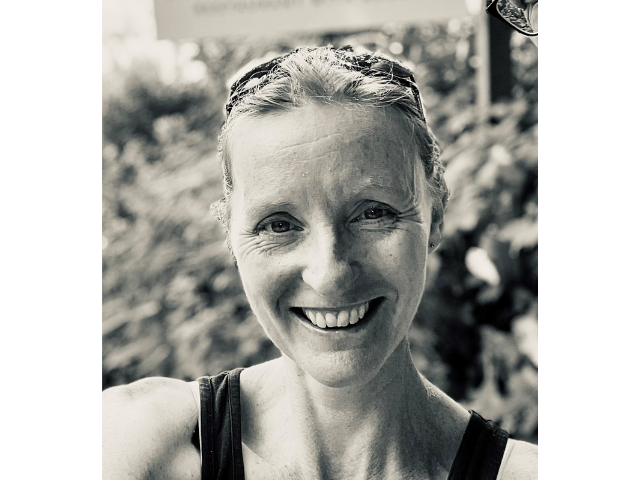
Brain tumour survivor's treatment inspired her into research
17 May
Hear more from Sarah by listening to Health and Care Research Wales’ Where would we be without research? podcast wherever you get your podcasts. Subscribe now.
At 27-years-old Dr Sarah Fry’s world was turned upside down when she found out she had a brain tumour. Whilst receiving her treatment, Sarah realised she was still alive because of research.
Through her own research, Sarah, who is now cancer free, strives to ensure under-served communities feel they can access the same healthcare services she did.
Under-served communities
Moving on from her role as an A&E nurse, Sarah started her research journey as a research nurse at Velindre University NHS Trust.
Whilst in the clinic, Sarah noticed she wasn’t seeing any African or African-Caribbean men, a group where one in four men will develop prostate cancer.
This inspired Sarah to pioneer her first research project looking at men who don’t have prostate cancer and how they understand their risk of getting it.
Sarah, who now works as a researcher and lecturer in the School of Healthcare Sciences at Cardiff University, said: “I found African and African Caribbean communities have a real culture of learning from each other. They use ‘us’ and ‘we’ rather than ‘I’ and ‘me’ when they’re talking about their risk of cancer.
“We, as academics and health care professionals, need to be going out to those communities and explaining risk in a way that means something to them, talking about how it affects them as a community not as individuals.”
The Butetown mile
Whilst talking to communities for her research, one of the men mentioned to Sarah the community was missing hosting an event called the Butetown mile which began in the late 1990’s.
After speaking to the community, Sarah was keen to launch it again in 2013.
Sarah said: “It’s so important communities see researchers not as people who come in, get their data and leave but people who care about what is happening. I’m so pleased to have launched the event again, the whole community is really involved.
“When the runners came towards the finish line that first year, I was really quite overwhelmed, it’s amazing what we had done as a community. It’s a key moment for me.”
Continuing the work
Through her next study, Sarah aims to create an environment where it’s easier to share health information.
By asking different communities about how they interpret information about prostate cancer, Sarah hopes to change this information to make it more accessible.
For the study, which will begin later this year, Sarah is forming a group from the community who can help shape and develop this research, to make sure she’s asking the right questions.
Sarah said: “I’m really excited about this project; we’re really coming to it from a community perspective rather than me as a researcher saying ‘I’m just going to do this’.
“I think it’s really important to get members of the community involved right from the beginning of the research so we can build it in a way which will be most useful to them.”